We asked skin-care experts to share their favorite natural sunscreens—here's what they had to say.
Our editors and experts handpick every product we feature. We may earn a commission from your purchases.Learn more.


We asked skin-care experts to share their favorite natural sunscreens—here's what they had to say.
Our editors and experts handpick every product we feature. We may earn a commission from your purchases.Learn more.
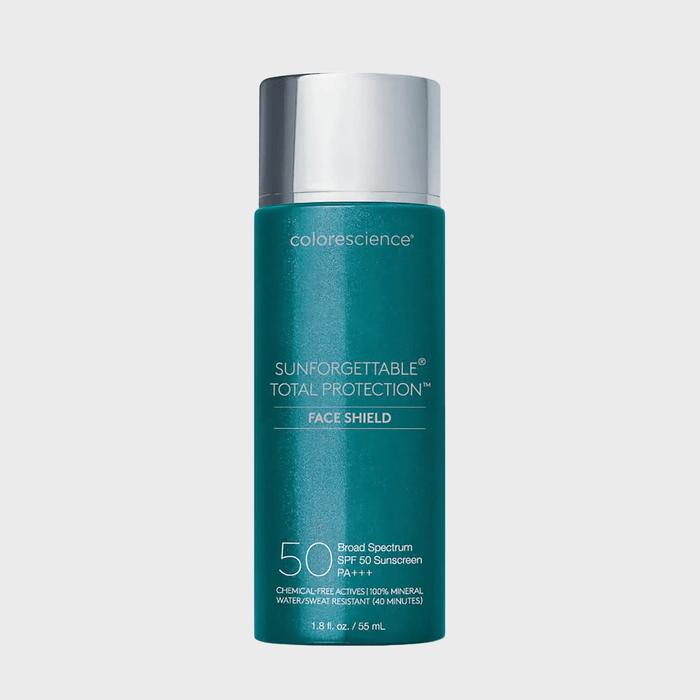
Pros:
Cons:
Among the best natural sunscreens is this elegant formulation from Colorescience that offers 12% zinc oxide and is designed with EnviroScreen technology. It provides invisible mineral protection from the sun’s UV rays, pollution, blue light and infrared radiation, Dr. Libby says. And when purchased through Dermstore, you can save money by auto-replenishing your bottle when it runs out—because you should wear sunscreen in the winter, summer and every day in between.
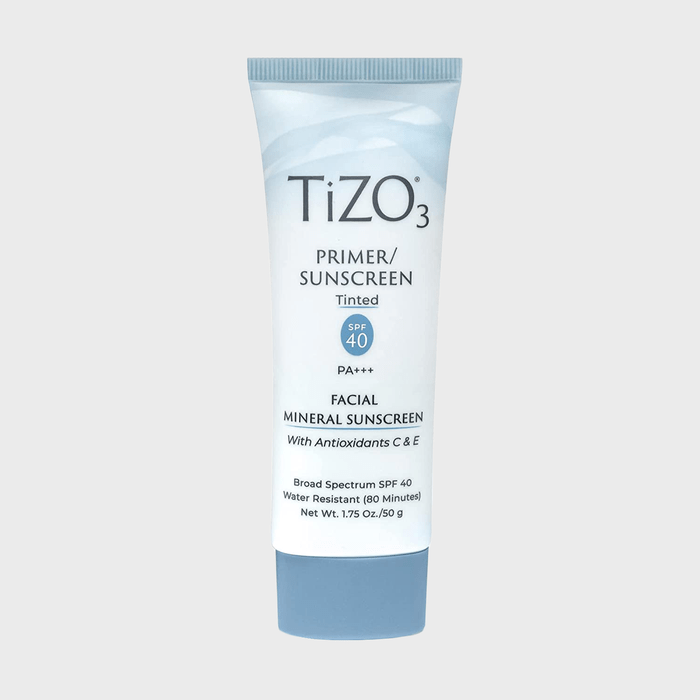
Pros:
Cons:
This tinted natural sunscreen is a favorite of Texas-based dermatologist Vivian Bucay, MD. “It’s silky, lightweight, hydrating and has a universal tint that works with almost any skin type,” she says. “It feels so good on skin, you’ve got no excuse not to apply it every day.” Like this? Here are more tinted sunscreens to add SPF to your makeup routine.
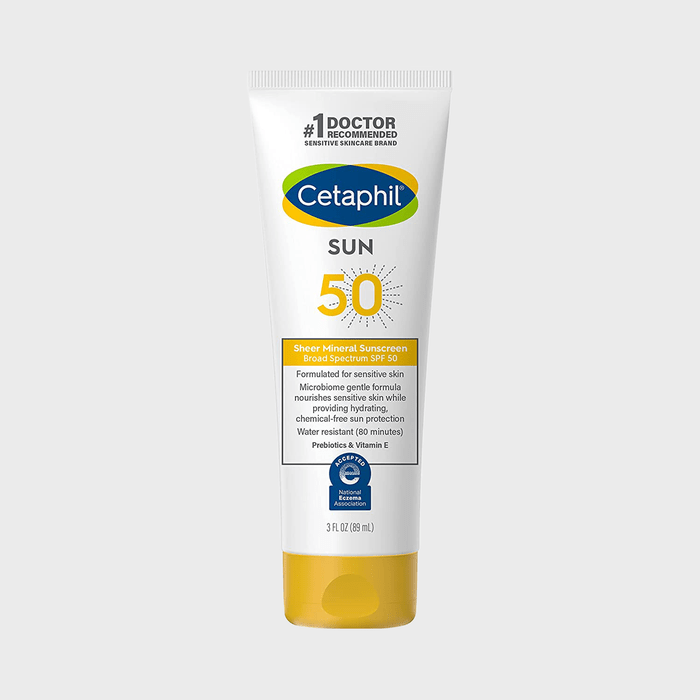
Pros:
Cons:
This broad-spectrum Cetaphil SPF 50 contains both titanium dioxide and zinc oxide to prevent sunburns, plus soothing vitamin E to help protect skin. The non-greasy formula won’t clog pores either, Cohen says. Plus, at $15 or less, it’s practically a steal on Amazon. Oh, and get yourself a scalp sunscreen to protect the spot you always forget about, too.

Pros:
Cons:
The EltaMD broad-spectrum sunscreen tops Cohen’s list of best natural sunscreens because it’s lightweight, hydrating, won’t clog your pores and offers up to 80 minutes of sweat and water resistance. Bonus: It doesn’t leave a white cast like other mineral sunscreens, he says.
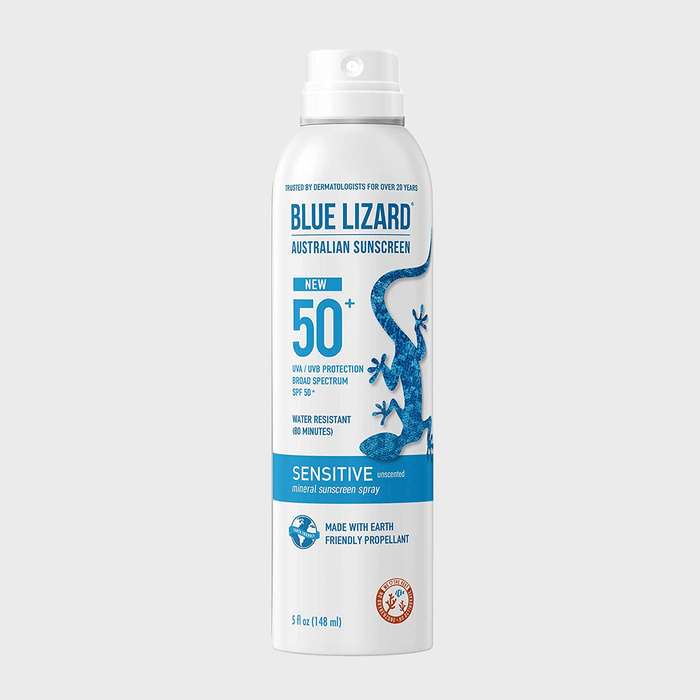
Pros:
Cons:
This Blue Lizard natural sunscreen comes in cream and spray versions, both of which are easy to apply on squirmy children, says Dr. Marcus. It’s SPF 50, water-resistant for up to 80 minutes and reef-safe (which means it won’t contribute to coral bleaching). Its affordable price on Amazon only makes purchasing it even more of a no-brainer.
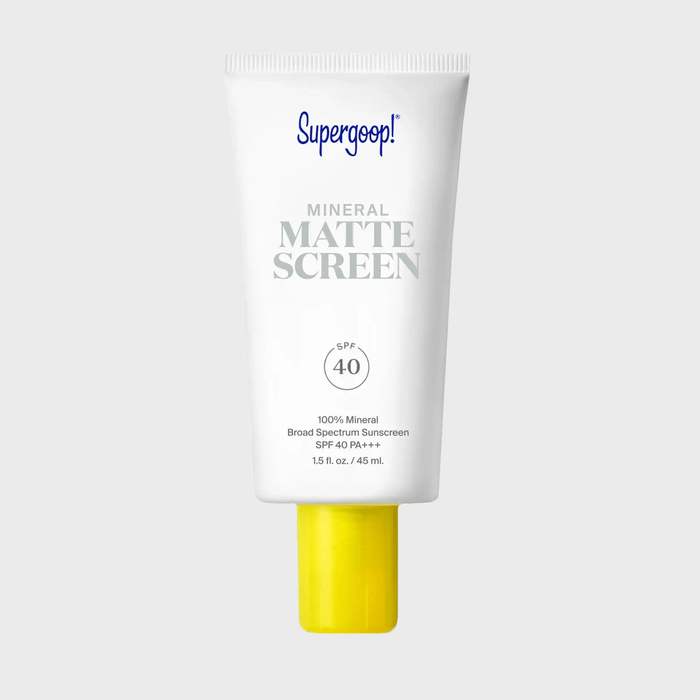
Pros:
Cons:
This natural Supergoop sunscreen is great for enlarged pores and oily skin. That’s because it’s not greasy and leaves behind a natural matte finish. “It provides broad-spectrum SPF 40 coverage and also protects against blue light as it contains butterfly bush extract,” says Garshick. Pair this sunscreen with one of the best foundations for oily skin.
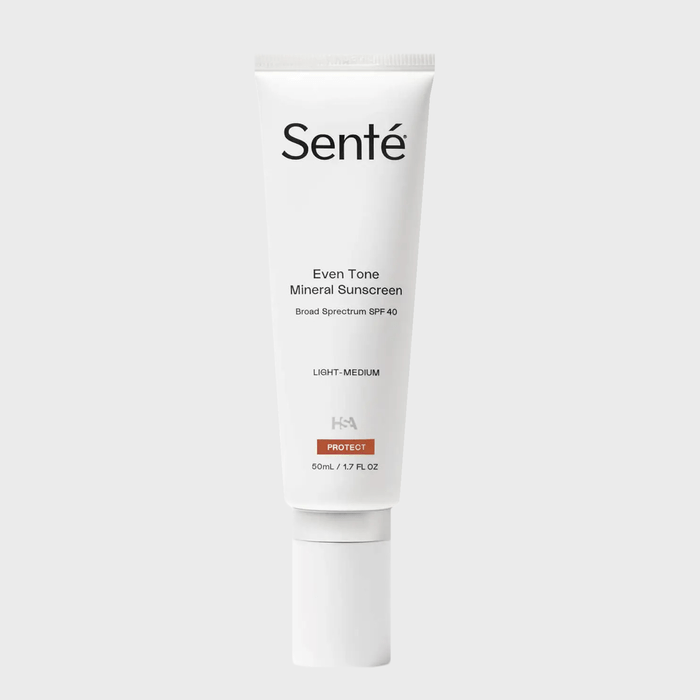
Pros:
Cons:
The tinted Senté sunscreen combines mineral sunscreen filters with Heparan Sulfate Analog (HSA) to cool inflammation and hydrate skin. Bonus: It also protects skin from blue light emitted by devices, Cohen says. It’s available in two tinted shades that adapt to your skin tone, both designed to blend effortlessly whether you’re wearing concealer over top or going au naturale.
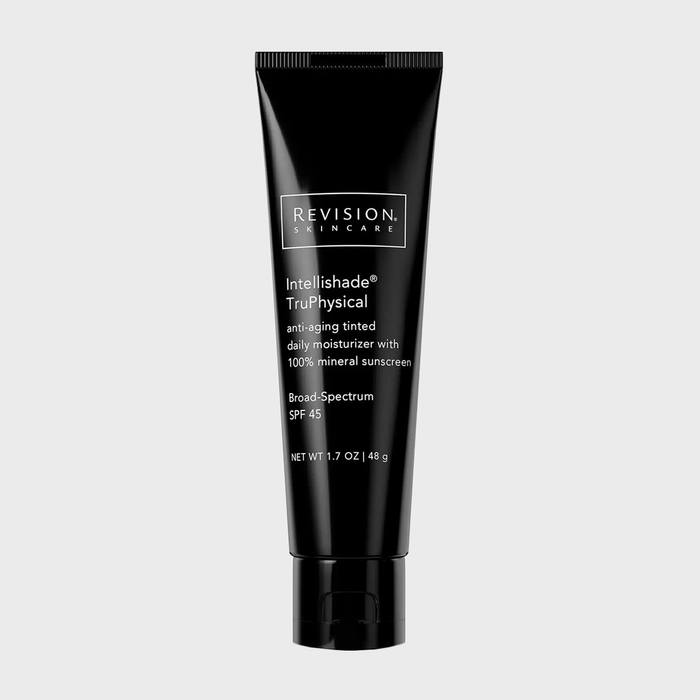
Pros:
Cons:
This tinted natural sunscreen boasts the most effective type of Vitamin C (called tetrahexyldecyl ascorbate) to brighten skin, while zinc oxide staves off sunburns, Cohen says. It’s formulated to improve the appearance of fine lines and wrinkles, plus provides a hydrated, plump appearance. If you’re in the market for a standalone vitamin C product, these are the best vitamin C serums, according to dermatologists.
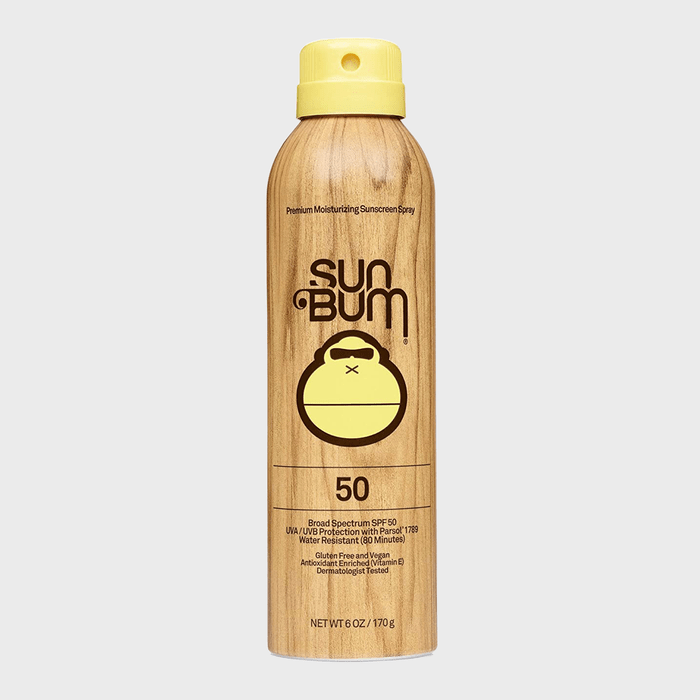
Pros:
Cons:
Certain chemicals in sunscreen may damage the ocean’s coral reef, which provides food and shelter to close to one quarter of all marine life. With close to 6,000 reviews, this highly rated Sun Bum natural sunscreen is widely beloved—and reef-friendly.
“I am very fair and on medication that makes me sensitive to the sun’s rays,” says verified purchaser April.” I love, love, love this product. I was in the sun for about three hours, and everywhere I put this product it did its job. It’s my go-to sunscreen this day going forward.”
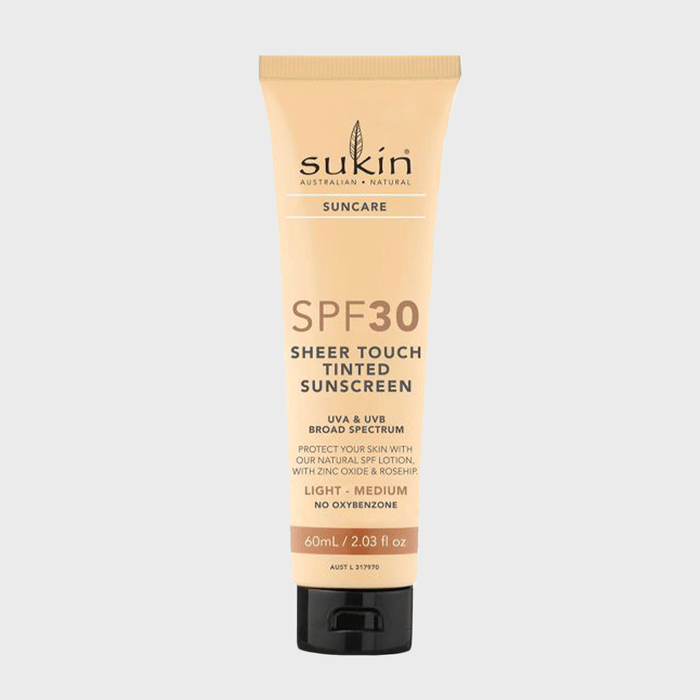
Pros:
Cons:
This zinc oxide sunscreen offers broad-spectrum coverage without leaving a white cast, says Marisa Garshick, MD, a dermatologist at MDCS Dermatology: Medical Dermatology & Cosmetic Surgery and an assistant clinical professor of dermatology at Cornell – New York Presbyterian Medical Center, both in New York City.
“It also contains green tea, offering antioxidant benefits to fight free radical damage, as well as rosehip which is rich in Vitamin A,” Garshick says.
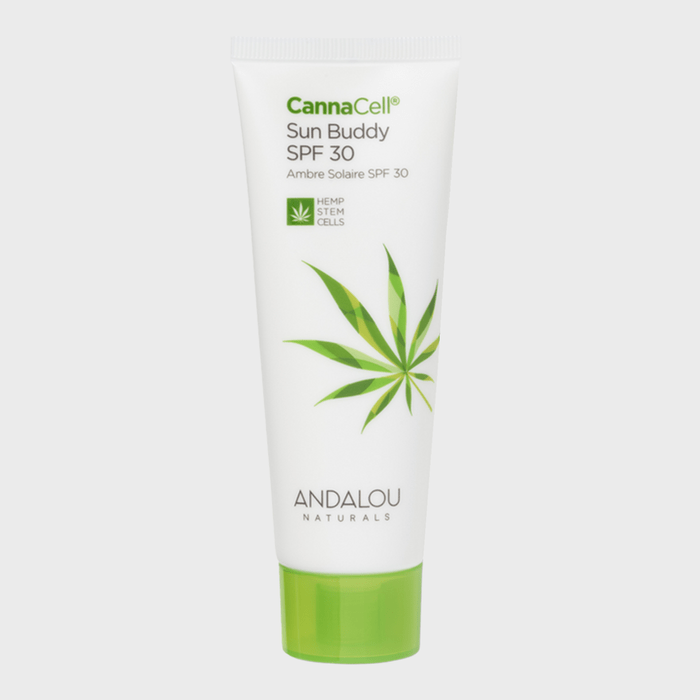
Pros:
Cons:
This Andalou Naturals sunscreen is formulated with CannaCell hemp stem cells, organic hemp seed oil and pure plant essential oils. These ingredients combine to help protect the skin from sun damage while also improving overall skin appearance, according to Garshick.
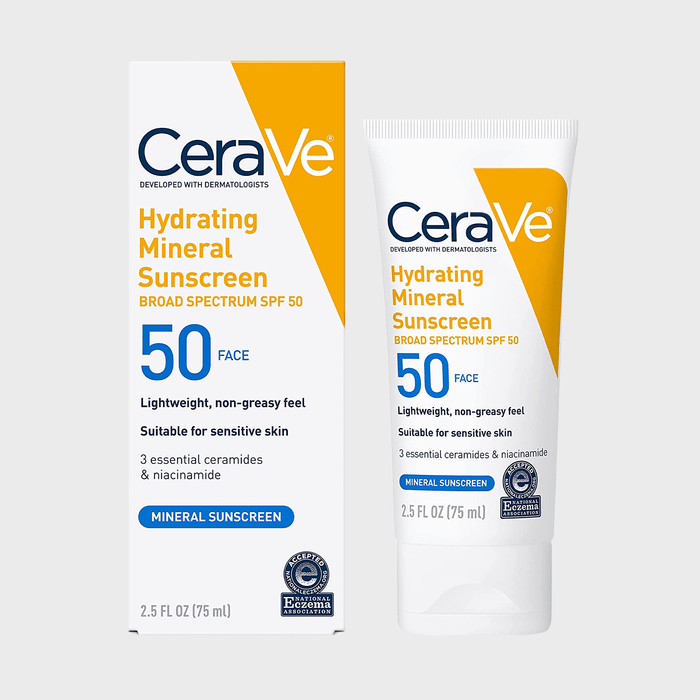
Pros:
Cons:
This hydrating natural sunscreen contains zinc oxide and titanium dioxide for broad-spectrum coverage, says Garshick. “In addition, it contains hyaluronic acid to help provide moisture, ceramides to help support the skin’s natural barrier as well as niacinamide which can soothe the skin,” she says. By the way, this is the right order to apply your skin-care products.
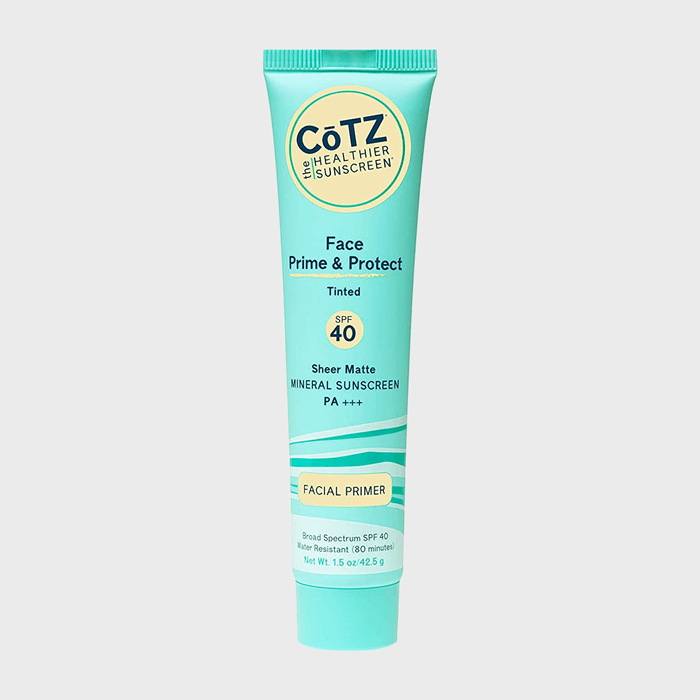
Pros:
Cons:
This tinted natural sunscreen pulls double duty as a makeup primer, providing a matte finish with SPF 40 sun protection. “It’s an amazing combination of sunscreen, primer and foundation,” says verified Amazon purchaser Sami. “I have the worst skin when it comes to oil, freckles, sunspots, huge pores and fine lines that collect foundation, but this stuff covers it up, evens it out and stays matte and looking silky smooth all day long.”
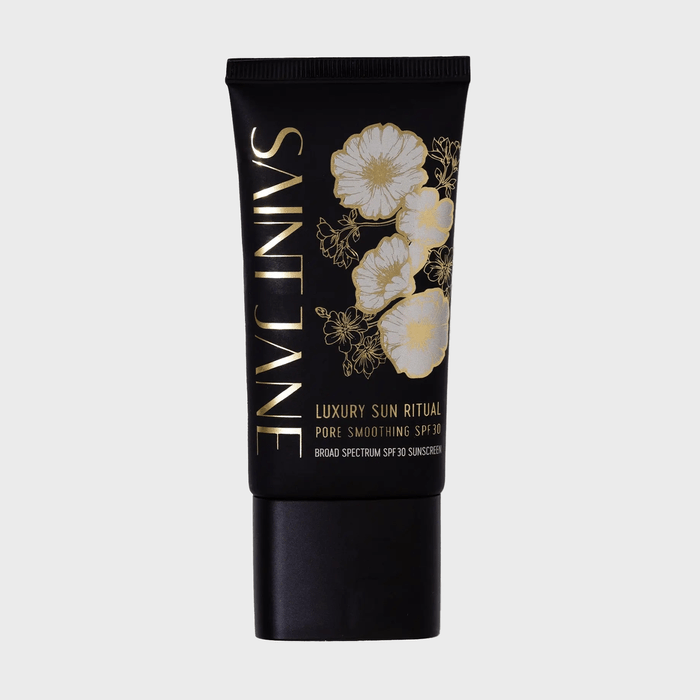
Pros:
Cons:
This invisible SPF formula is rich in active florals, says Cynthia Franco, an esthetician in Beverly Hills. “A combination of flowers that thrive in the sun were used: hibiscus, jasmine and desert rose. Not only are they incredibly nourishing and hydrating, but they also have an innate ability to protect themselves from harsh UV rays,” she says.
This sunscreen is on the expensive side, but you won’t want to hide the gorgeous tube away in a cabinet. It’s pretty and protective.
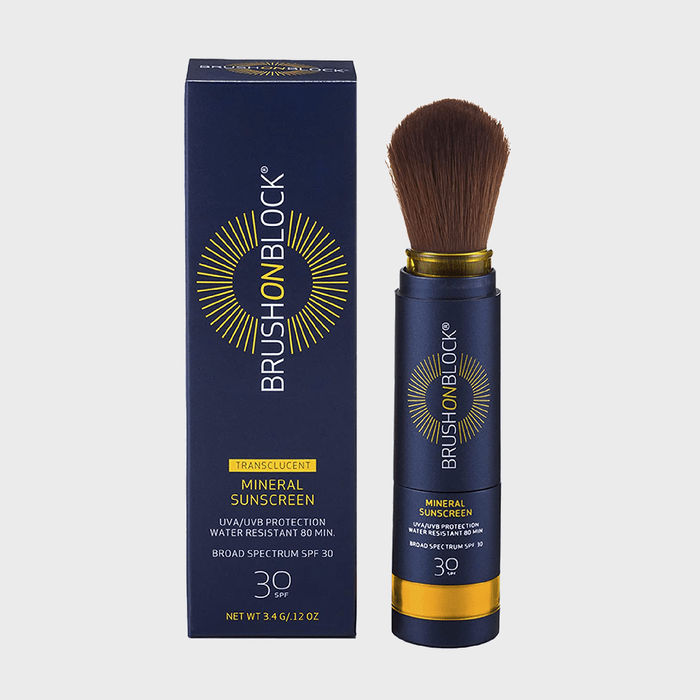
Pros:
Cons:
The key with any sunscreen is to reapply it regularly, and that’s more likely to happen when using a brush-on powder, says New York City dermatologist Hadley King, MD, a clinical instructor of dermatology at the Weill Medical College of Cornell University. “It’s a great solution for people who don’t want to reapply sunscreen because they don’t want to mess up their makeup,” she says.
This sunscreen absorbs excess oil, so it also does double duty as a finishing powder, extending the life of your makeup.
Here are some more powder sunscreens worth adding to your daily skincare routine.
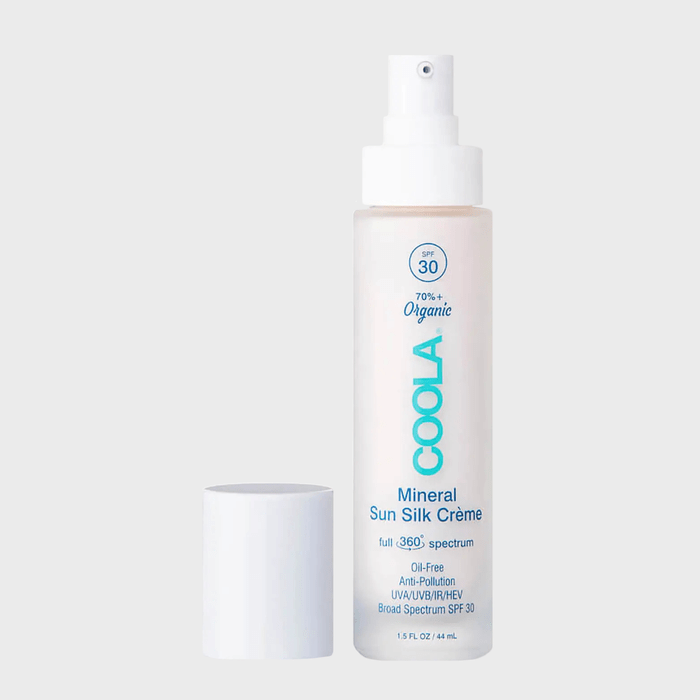
Pros:
Cons:
This natural sunscreen is made with over 70% certified organic ingredients. It also protects against blue light and the harmful effects of pollution, says Sumayah Jamal, MD-PhD, Director of the Skin of Color Specialty Clinic at Schweiger Dermatology Group in New York City. Add it to your arsenal of natural beauty products.
The first step is choosing between a mineral or a chemical sunscreen. According to Cohen, both options block dangerous ultraviolet radiation.
“Mineral sunscreens do the best job with broad-spectrum sun protection; however, they have historically been thought to be more visible on the skin and not rub in as well,” he says. “More recently, great strides have been made to make these mineral sunscreens much more cosmetically elegant—so they rub in much better and are not as apparent on the skin.”
Chemical sunscreens, on the other hand, absorb and disperse UV rays, explains Cohen. Potential concerns with chemical sunscreens are irritation, sensitivity and, well, chemicals. Some research shows that chemicals in sunscreens can find their way into the bloodstream, according to dermatologist Rebecca Marcus. “Although these chemicals have not necessarily been shown to be harmful once in the bloodstream, more studies are needed to confirm this, and therefore physical sunscreen poses less potential risk,” she says.
I am an award-winning health-science writer with a wealth of experience, having published articles on Reader’s Digest, WebMD, healthday.com and cnn.com. My work has covered various skincare topics, including anti-aging eye creams, LED masks, vitamin C serums and face washes. Through my research and writing, I’ve consulted with numerous dermatologists and doctors, giving me a deep understanding of the skincare industry.
For this article, I interviewed a variety of reputable sources to delve into the science behind natural sunscreens and to identify the best options on the market. Our panel of experts included:
To select the best natural sunscreens, we started by researching a wide range of options available on the market, focusing on ingredients and price point. We also sought out options designed for specific skin types, such as oily, dry, aging and dark skin. To narrow down our choices, we analyzed customer reviews to understand the real-world performance of each natural sunscreen. Lastly, we consulted dermatologists and skin experts to ensure that our recommendations included products they would personally use on their own faces.
Sources: